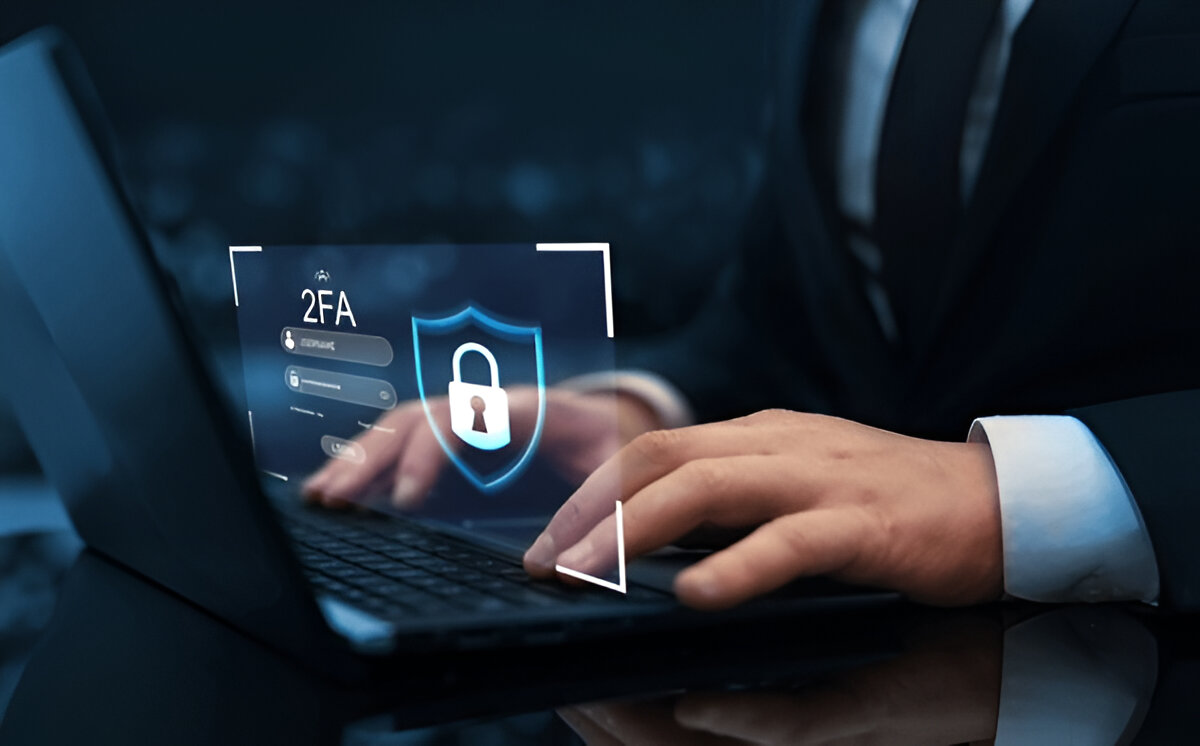Imagine locking your front door, but also adding a fingerprint scanner. That’s what 2FA does for your online life. If you’re asking, “What’s 2FA meaning, and do I really need it?”—you’re in the right place.
With data breaches on the rise in 2025, it’s more important than ever to protect your digital identity. Whether you’re a student, creator, entrepreneur, or just someone with an email account, two-factor authentication (2FA) can be your online security sidekick.
What Is 2FA? (2FA Meaning Explained)
2FA stands for Two-Factor Authentication. It’s an extra layer of security used to make sure that people trying to gain access to an online account are really who they say they are.
2FA meaning: It’s a security method that requires two forms of identification before you can log in.
Usually, these two forms include:
-
Something you know – like a password
-
Something you have – like a phone, app, or physical device
This way, even if someone steals your password, they still can’t get into your account unless they have that second factor.
Why Your Password Isn’t Enough in 2025
Let’s face it—passwords get hacked all the time. According to Verizon’s 2024 Data Breach Report, over 80% of hacking-related breaches involved weak or stolen passwords.
Here’s how hackers might steal your password:
-
Phishing emails
-
Public Wi-Fi snooping
-
Data breaches from other websites
-
Password reuse across sites
Without 2FA, your accounts are wide open after that. But with 2FA, even if your password leaks, the hacker still needs your phone, app, or device to get in.
Real-Life Example: How Sarah Avoided a Cyber Nightmare
Sarah, a freelance graphic designer, got an email from a “client” asking her to sign into a shared Google Doc. It was a phishing scam.
She entered her password, but thanks to Google’s 2FA, the hacker couldn’t access her account without her mobile code. She got a security alert, changed her password immediately, and avoided disaster.
“2FA saved my Gmail, Drive, and all my client files,” Sarah says.
How Does 2FA Work?
Let’s simplify it with a common login flow:
| Step | What Happens |
|---|---|
| 1. Enter password | You type your usual login credentials |
| 2. Second factor | You receive a code via SMS, app, or device |
| 3. Access granted | You enter the code and access your account |
The second step is what stops hackers in their tracks.
Common 2FA Methods You Can Use
| Method | How It Works | Security Level |
|---|---|---|
| SMS Code | Sends code to your phone number via text | 🟡 Medium |
| Email Code | Sends code to your email address | 🟡 Medium |
| Authenticator App | Time-based codes from apps like Google Authenticator | 🟢 Strong |
| Push Notification | Tap “Yes” on a device like your phone (e.g., Duo) | 🟢 Very Strong |
| Security Key (USB) | Physical key like YubiKey you plug into your device | 🔵 Maximum |
| Biometric | Uses fingerprint or facial recognition | 🔵 Maximum |
Pro Tip: Authenticator apps and security keys are the safest options in 2025.
Best 2FA Tools & Apps (2025 Edition)
Here are some trusted apps and tools for 2FA:
-
Google Authenticator – Free, simple, trusted by millions
-
Authy – Cloud backup and multi-device support
-
Microsoft Authenticator – Great for Microsoft ecosystem users
-
Duo Security – Enterprise-level protection, free for individuals
-
YubiKey – Physical USB/NFC key for top-tier protection
All of these tools work on both Android and iOS devices.
How to Set Up 2FA on Popular Platforms
Enable 2FA in under 5 minutes on your favorite accounts:
🔹 Gmail/Google:
Go to myaccount.google.com/security → “2-Step Verification” → Choose SMS or Authenticator App
🔹 Facebook:
Settings → Security & Login → Use two-factor authentication → Choose your method
🔹 Instagram:
Settings → Security → Two-Factor Authentication → Choose app or SMS
🔹 Microsoft/Outlook:
Account settings → Security → Advanced Security Options → Turn on 2FA
🔹 PayPal:
Settings → Security → 2-step verification
Always save backup codes when setting up 2FA in case you lose your phone.
FAQs About 2FA (Simple Answers)
What if I lose access to my second factor?
Most services offer backup codes, recovery emails, or device reset options. Store these safely offline.
Is SMS-based 2FA safe?
Better than nothing, but authenticator apps and hardware keys are much more secure.
Can hackers still break 2FA?
It’s extremely rare—2FA blocks most automated attacks and phishing attempts.
Should I use 2FA on every account?
At least enable it on:
-
Email
-
Bank & financial accounts
-
Social media
-
Cloud storage (like Google Drive or Dropbox)
Pros & Cons of Using 2FA
| Pros | Cons |
|---|---|
| Adds a powerful layer of protection | Takes a few extra seconds to log in |
| Protects you against password theft | May lock you out if you lose access |
| Required by many platforms in 2025 | SMS codes can be intercepted |
| Peace of mind for your digital identity | Slight learning curve for beginners |
Final Thoughts: 2FA Isn’t Optional Anymore
If your password is the first lock, 2FA is your digital deadbolt. In today’s world of leaks, hacks, and online scams, enabling 2FA is one of the easiest and most powerful actions you can take to protect your accounts.
So, if you’ve ever searched for “2FA meaning,”—now you know it. And hopefully, you’re also ready to activate it today.
Take 5 minutes right now to turn on 2FA for your most important accounts. Future-you will thank you.

